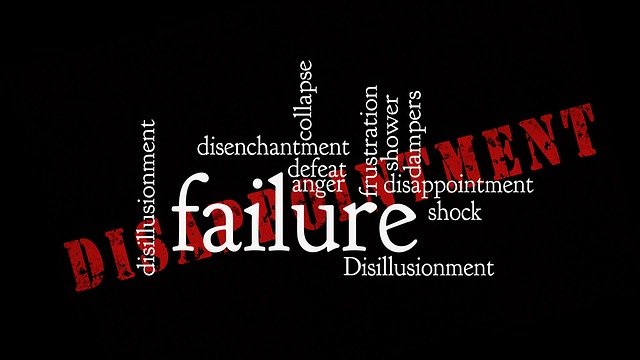Failure, like Success, is a personal thing. It can only be defined by you for you. I can’t tell you when you’ve failed, except by using your own definition. I can’t even tell you that you’ve failed if you quit trying because you can legitimately discard some Goals without being a failure. Probably the only exception to this is if you don’t have any Goals at all or abandon your own Goals to let others determine your fate. Of course, you could be totally satisfied with that too. Maybe you just don’t have high expectations.
So, what’s the point then?
Too often we let others define our Success and our Failures. We try to satisfy others before ourselves. I don’t include family here, though I suppose you may. Family is an extension of ourselves, so taking care of it is taking care of ourselves. The trick is to do it in a way that everyone in the family is taken care of, including ourselves.
When we let others define Success and Failure, we’ve given control of our lives and our Values over to someone else, whether it’s a boss, spouse, friend, partner or competitor. Our Values are the starting point for defining what Success is, so by definition Values are also the starting point for defining what it means for us to fail. We control what is important to us, because it is internal to us. Others can help form and inform these decisions, but ultimately these decisions are our own.
When we look at what’s important to us and come up with our Values, Vision, Mission and Goals we determine what Success looks like. At some point after that, we have to decide what Failure looks like. We can’t just define Failure as not achieving the Goals we set. If we do, we don’t leave any room to change things along the way. We don’t have any room to grow and change.
So, if Failure is not the opposite of Success, then what should it be? Is it never achieving our Vision through our Goals? Maybe, but what if we’ve ended up somewhere even better? Would that be Failure? Failure is hard to define because like Success, it changes depending on external circumstances that work to influence us. Our opinions change. What is most important changes over long and short periods of time?
Because it can be such a moving target, I suggest we define Failure only in large, grand terms. The definition of Failure should be so large, that it’s almost impossible to fail. It should almost take deliberate, thoughtful actions that can only lead to whatever that definition is for you.
Why?
Because it leaves you succeeding far more than you are failing. Failure tends to be something we define as the end. Once we get there, we’re done. This big picture of Failure lets us turn what we might have called failures into learning experiences. Mistakes shouldn’t be Failures. Errors and accidents aren’t Failures. These are things that give us experience and wisdom.
It is often said that you have to keep failing until you finally know how to succeed. In the sense that we learn from these events to make us better, then yes that’s true, I think we get caught up sometimes in the word Failure. No one wants to fail. It’s like losing. No one wants to be a loser. That seems even more final than calling something a Failure. The reason we hate these terms and think of them as finalities is that we think that if an attempt doesn’t work, that we are a Failure.
Do you see the problem there? We identify with the labels of Failure or Loser. Our actions are what fail or lose. We don’t become a Failure. We don’t become a loser. These are events, not identities. That’s an incredibly difficult mindset to overcome. Men especially are prone to this, because more than women, our self-worth tends to come from what we do and how well we do it.
Yes, I know that’s not universal. Women have this problem too. My experience tells me it’s a bigger problem for men though. Because of this, we think we become the result. We, personally, are the Success, the Failure or the Loss (loser). We might not even realize that’s what we’re thinking. It’s so natural for us to identify with the results we get. In some ways, this is inherent to the whole Goal-Setting process. Goals are intensely personal, therefore the results are too.
The trick is to not let ourselves become the results. When we don’t get the results we want, we tell ourselves we’re a Failure and a Loser. That’s why Failure should be defined so big and complex that you almost have to purposely try to Fail in order to get hit there. It lets you learn from setbacks without becoming the setback. It lets you grow without being limited by identifying with the wrong thing.
Failures are things, not people. Actions beget results which will be what we want (successes) or not what we don’t want (failures/setbacks).


